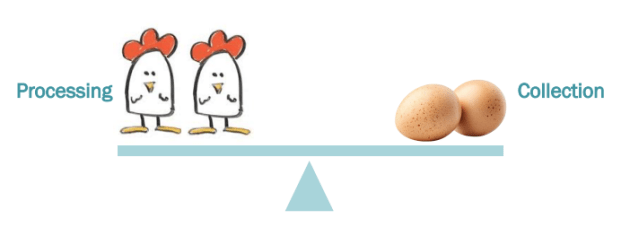The Plastics and Circular Economy 2024 Australian Update webinar commenced on 21 October 2024, focusing on Australia’s transition from a linear to a circular economy in the context of plastic management. The event gathered industry professionals, policymakers, and sustainability advocates to discuss significant advancements and challenges in the sector.
Hamad Ghajarnia, president of SPE - ANZ Section, opened the webinar by expressing enthusiasm for discussing Australia's sustainability journey in the plastics industry. He highlighted the introduction of national frameworks aimed at improving recycled content traceability and ongoing reforms in plastics regulations.
Caitlin Ellis, director of the packaging taskforce at the Department of Climate Change, Energy, the Environment and Water (DCCEEW), and Cameron Colebatch, director of International Plastics Policy at DCCEEW, presented a joint discussion on the current state of plastics consumption and waste in Australia. Ellis highlighted key statistics indicating a significant increase in plastic waste, with recycling rates stagnating at 13.9 per cent in 2022 and a recovered plastic export rate of 35.1 per cent. She emphasised the government's efforts to reform packaging regulations and advocate for a global treaty on plastic pollution, stating, "We aim to transition to a circular economy for plastics, reducing waste and pollution."
Colebatch elaborated on initiatives to reduce plastic waste and reform recycling sectors, outlining the release of the national framework for recycled content traceability, which seeks to enhance transparency in supply chains and support sustainable business practices. He also discussed the establishment of a new environmentally sustainable procurement policy aimed at leveraging government purchasing power to bolster markets for recycled products.

Chris Foley, CEO of the Australian Packaging Covenant Organisation (APCO), expressed the need for regulatory reform in Australia’s packaging system to optimise resource recovery and reduce litter. He pointed out that while the national targets aim for 100 per cent of packaging to be reusable, recyclable, or compostable by 2025, only 84 per cent currently meets these criteria.
Foley criticised the current member fee structure, which is based on annual turnover rather than packaging footprints, advocating for eco-modulated fees to encourage better packaging design and recycling. He noted that 70 per cent of rigid plastics end up in landfill despite being recyclable and outlined APCO's 2030 strategy to increase the diversion, reuse, collection, and recycling of plastics, with eco-modulated fees expected by FY27. He mentioned the collaboration among 90 businesses refining this approach as APCO prepares to implement these changes.
Helen Millicer, CEO of One Planet Consulting, stated the need for the Australian plastics sector to transition toward a circular economy. Drawing on her experience in environmental policy and her understanding of the plastic supply chain, she highlighted that while plastics are vital for many sectors, they also pose significant sustainability challenges.

Barry Crozier, director of sustainability at the Australian Food and Grocery Council (AFGC), discussed the progress made with kerbside trials and in-store collection programs while also recognising the operational challenges that lie ahead. He introduced Soft Plastics Stewardship Australia, an independent organisation formed by major retailers and the AFGC to enhance recycling efforts. His strategic approach emphasised collaboration, including the formation of a stakeholder advisory committee and conducting longer-term trials to refine collection methods. As he noted, "We actually need more processing and we need more collection. So that doesn’t solve it; it doubles the issue."
In the discussion on Australia’s recycling market, Arjuna Wimalasuriya, managing director of Plastoil, emphasised the importance of collaboration and technology in achieving national circularity commitments for post-consumer plastics. He pointed out that "with adequate recycling infrastructure in place, we could increase recovery rates significantly, but design standards alone will not deliver the required outcomes".
Andrea Polson, general manager of Licella Holdings, talked about the role of advanced recycling in realising a circular economy for plastics. She stressed that hydrothermal liquefaction is vital for producing food-grade, post-consumer recycled content, especially concerning soft plastics. Drawing on a life cycle assessment from the EU's Joint Research Committee, Polson noted, "Advanced recycling is preferable to energy recovery", underscoring the need for more sustainable solutions in plastic waste management.
In the presentation by Vanessa Lennyhan and Maddie McFadden from Viva Energy Australia, they discussed their work on developing sustainable solutions within the circular economy, particularly in the recycling of soft plastics. Lennyhan highlighted the company’s efforts to transition from traditional fossil fuels to alternative feedstocks at their Geelong refinery. McFadden elaborated on the technical challenges involved in integrating soft plastics into the refining process, noting the need for extensive sorting and cleaning of feedstocks to ensure compatibility with their pyrolysis technologies. She shared insights gained from a visit to various recycling facilities in Europe, which highlighted the importance of sorting and the varying methods employed across different plants.






